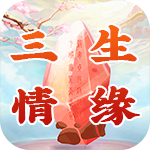1. 英文優美的句子 短語 諺語 修辭 形容詞 比喻 高考的
1.愛屋及烏 Love me, love my dog. 2.百聞不如一見 Seeing is believing.3.比上不足比下有余 worse off than some, better off than many; to fall short of the best, but be better than the worst. 4.笨鳥先飛 A slow sparrow should make an early start. 5.不眠之夜 white night 6.不以物喜不以己悲 not pleased by external gains, not saddened by personnal losses 7.不遺余力 spare no effort; go all out; do one's best 8.不打不成交 No discord, no concord. 9.拆東墻補西墻 rob Peter to pay Paul 10.辭舊迎新 bid farewell to the old and usher in the new; ring out the old year and ring in the new 11.大事化小小事化了 try first to make their mistake sound less serious and then to reduce it to nothing at all 12.大開眼界 open one's eyes; broaden one's horizon; be an eye-opener 13.國泰民安 The country flourishes and people live in peace 14.過猶不及 going too far is as bad as not going far enough; beyond is as wrong as falling short; too much is as bad as too little 15.功夫不負有心人 Everything comes to him who waits. 16.好了傷疤忘了疼 once on shore, one prays no more 17.好事不出門惡事傳千里 Good news never goes beyond the gate, while bad news spread far and wide. 18.和氣生財 Harmony brings wealth. 19.活到老學到老 One is never too old to learn. 20.既往不咎 let bygones be bygones 21.金無足赤人無完人 Gold can't be pure and man can't be perfect. 22.金玉滿堂 Treasures fill the home. 23.腳踏實地 be down-to-earth 24.腳踩兩只船 sit on the fence 25.君子之交淡如水 the friendship between gentlemen is as pure as crystal; a hedge between keeps friendship green 26.老生常談陳詞濫調 cut and dried, cliché 27.禮尚往來 Courtesy calls for reciprocity. 28.留得青山在不怕沒柴燒 Where there is life, there is hope. 29.馬到成功 achieve immediate victory; win instant success 30.名利雙收 gain in both fame and wealth 31.茅塞頓開 be suddenly enlightened 32.沒有規矩不成方圓 Nothing can be accomplished without norms or standards. 33.每逢佳節倍思親 On festive occasions more than ever one thinks of one's dear ones far away.It is on the festival occasions when one misses his dear most. 34.謀事在人成事在天 The planning lies with man, the outcome with Heaven. Man proposes, God disposes. 35.弄巧成拙 be too smart by half; Cunning outwits itself 36.拿手好戲 masterpiece 37.賠了夫人又折兵 throw good money after bad 38.拋磚引玉 a modest spur to induce others to come forward with valuable contributions; throw a sprat to catch a whale 39.破釜沉舟 cut off all means of retreat;burn one's own way of retreat and be determined to fight to the end40.搶得先機 take the preemptive opportunities 41.巧婦難為無米之炊 If you have no hand you can't make a fist. One can't make bricks without straw.42.千里之行始于足下 a thousand-li journey begins with the first step--the highest eminence is to be gained step by step 43.前事不忘后事之師 Past experience, if not forgotten, is a guide for the future. 44.前人栽樹后人乘涼 One generation plants the trees in whose shade another generation rests.One sows and another reaps. 45.前怕狼后怕虎 fear the wolf in front and the tiger behind hesitate in doing something 46.強龍難壓地頭蛇 Even a dragon (from the outside) finds it hard to control a snake in its old haunt - Powerful outsiders can hardly afford to neglect local bullies. 47.強強聯手 win-win co-operation 48.瑞雪兆豐年 A timely snow promises a good harvest. 49.人之初性本善 Man's nature at birth is good. 50.人逢喜事精神爽 Joy puts heart into a man. 51.人海戰術 huge-crowd strategy 52.世上無難事只要肯攀登 Where there is a will, there is a way. 53.世外桃源 a fictitious land of peace away from the turmoil of the world; 54.死而后已 until my heart stops beating 55.歲歲平安 Peace all year round. 56.上有天堂下有蘇杭 Just as there is paradise in heaven, ther are Suzhou and Hangzhou on earth 57.塞翁失馬焉知非福 Misfortune may be an actual blessing. 58.三十而立 A man should be independent at the age of thirty.At thirty, a man should be able to think for himself. 59.升級換代 updating and upgrading (of products)60.四十不惑 Life begins at forty. 61.誰言寸草心報得三春暉 Such kindness of warm sun, can't be repaid by grass. 62.水漲船高 When the river rises, the boat floats high. 63.時不我待Time and tide wait for no man. 64.殺雞用牛刀break a butterfly on the wheel 65.實事求是seek truth from facts; be practical and realistic; be true to facts 66.說曹操,曹操到Talk of the devil and he comes. 67.實話實說speak the plain truth; call a spade a spade; tell it as it is 68.實踐是檢驗真理的唯一標準Practice is the sole criterion for testing truth. 69.山不在高,有仙則名'No matter how high the mountain is, its 。
2. 急需使用修辭手法的英語句子對比,引用,舉例子,大話,排比,因
反問為了加強語氣,用疑問句的形式表示確定的意屋常用肯定形式表示否定,用否定形式表示肯定.例如: 就說蔣筑英吧.已經經過了這樣長久的考驗,跑他入黨的志愿,也一定要等到死后才能由省委的追認滿足麼?(用肯定的形式表示否定) 我呢,我難道沒有應該責備的地方嗎?(用否定式表示肯定的意思.) 反問與設問的區別: 1、設問不表示肯定什麼或否定什麼;反問則明砌表示肯定和否定的內容. 2、反問的作用主要是加強語氣,設問的作用主要是提出問題,引起注意,啟發思考.排比 (一)概念: 排比是由三個或三個以上結構相同或相似、內容相關、證據一致的短語或句子排列在一起,用來加強語勢強調內容,加重感情的修辭方式. (二)排比和種類: 1、成分排比即一個句子中的一些成分組成排比.例如: 延安的歌聲它是黑夜的火把,雪天的煤炭,大旱的甘霖. 2、分句排比即一個復句的各個分句構成排比.例如: 他們的品質是那樣的清潔和高尚,他們的意志是那樣的堅韌和剛強,他們的氣質是那樣的淳樸和謙遜,他們的胸懷是那樣的美麗和寬廣. 3、單句排比例如: 八路軍穿草鞋,把日本鬼子趕下海.解放軍穿草鞋,把蔣家王朝踢下臺.如今八連穿草鞋,把香風毒霧肢下踩. 4、復句排比.例如: 如果我們能夠研制出一種類似鷹眼的搜索、觀測技術系統,就能夠擴大飛行員的視野,提高他們的視敏度.如果能研制出具有鷹眼視覺原理的“電子鷹眼”,就有可能用于控制遠程激光制導武器的發射.如果能給導彈裝上小巧的“鷹眼系統”,那麼它就可以象雄鷹一樣,自動尋找、識別、追蹤目標,做到百發百中. (三)排比的作用: 1、內容集中,增強氣勢;2、敘事透辟,條分縷析;3、節奏鮮明,長于抒情. (四)排比與對偶的區別: 1、對稱性與平列式.對偶是二個語言單位,而排比是三個以上語言單位.對偶必須對稱.排比要求結構大體相似,字數要求不甚嚴格. 2、排比經常以同一詞語作為彼此的揭示語,使排體互相銜接、給人以緊湊、密集之感.而典型的對偶句上下兩聯是不重字的. 3、對偶以要求平仄對仗為佳,排比則無此要求.對偶 (一)概念: 對偶是用字數相等,結構形式相同,意義對稱的一對短語或句子來表達兩個相對或相近意思的修辭方式. (二)對偶的種類: 1、正對.上下句意思上相似、相近、相補、相襯的對偶形式.例如: a.墻上蘆葦,頭重腳輕根底淺;山間竹筍,嘴類皮厚腹中空. 2、反對.上下句意思上相反或相對的對偶形式.例如: b.橫眉冷對千夫指,俯首甘為孺子牛. 3、串對(流水對).上下句意思上具有承接、遞進、因果、假設、條件等關系的對偶形式.例如: c.才飲長江水,又食武昌魚. 根據上下句的形式又可以把對偶分為嚴式對偶和寬式對偶,嚴式對偶要求上下兩句字數相等,詞性相對、結構相同、平厭相對、不重復用字.如例句曲.寬式對偶對嚴式對偶五條要求只要有一部分達到就可以,不很嚴格,如例句c. (三)對偶的結構: 1、成分對偶.例如: 然而我的壞處,是在論時事不留面子,泛銅弊常取類型,而后者尤與時宜不合. 2、句子對偶.例如: 秋水共長天一色,落霞與孤騖齊飛. (四)對偶的作用: 便于吟誦,易于記憶;用于詩詞、有音樂美;表意凝煉,抒情酣暢. (五)對偶與對比的不同點; 1、對比的基本特點是“對立”,對偶的基本特點是“對稱”. 2、對偶主要是從結構開工上說的,它要求結構相稱,字數相等;對比是從意義上說的,它要求意義相反或相近,而不管結構形式如何. 3、對偶里的“反對”(如“橫眉冷對千夫指,俯首甘為孺子牛”)就意義說是對比,就形式說是對偶,這是修辭手法的兼類現象.)夸張 (一)概念: 夸張是為達到某種表達需要,對事物的形象、特征、作用、程度等方面著意擴大或縮小的修辭方式. (二)種類: 夸張可分為三類,即擴大夸張,縮小夸張,超前夸張. 1、擴大夸張:故意把客觀事物說得“大、多、高、強、深……”的夸張形式.例如:蜀道之難,難于上青天. 2、縮小夸張:故意把客觀事物說得“小、少、低、弱、淺、……”的夸張形式.例如:一個渾身黑色的人,站在老栓面前,眼光正像兩把刀,刺得老栓縮小了一半. 3、超前夸張:在時間上把后出現的事物提前一步的夸張形式.例如:農民們都說:“看見這樣鮮綠的茵,就嗅出白面包子的香味來了. (三)夸張的作用: 1、揭示本質,給人以啟示. 2、烘托氣氛,增強感染力. 3、增強聯想;創造氣氛. (四)運用夸張要注意以下三點. 第一,夸張不是浮夸,而是故意的合理的夸大,所以不能失去生活的基礎和生活的根據.下面運用的夸張腳下地球當球玩,大洋海水能喝干. 第二,夸張不能和事實距離過近,否則會分不清是在說事實還是在夸張. 第三,夸張要注意文體特征,如科技說明文、說理文章就很少用甚至不用夸張,以免歪曲事實.借代 (一)概念: 借代是用相關的事物來代替所要表達的事物的修辭方式.這種修辭方式不直接說出要說的人或事物. (二)借代的種類: 1、用事物特征代本體事物.例如:紅眼睛原知道他家里只有一個老娘…… 2、具體代抽象,例如:槍桿子里面出政權. 3、專名代泛稱.例如:我們的時代需要千千萬萬個雷鋒. 4、形象代本體.例如:上面塵。
3. 求很多地道的英文修辭句
首先向你推薦本書 我們的教材藍色的‘'一、明喻(simile)是以兩種具有相同特征的事物和現象進行對比,表明本體和喻體之間的相似關系,兩者都在對比中出現。
常用比喻詞like, as, as if, as though等,例如: 1、This elephant is like a snake as anybody can see. 這頭象和任何人見到的一樣像一條蛇。 2、He looked as if he had just stepped out of my book of fairytales and had passed me like a spirit. 他看上去好像剛從我的童話故事書中走出來,像幽靈一樣從我身旁走過去。
3、It has long leaves that sway in the wind like slim fingers reaching to touch something. 它那長長的葉子在風中擺動,好像伸出纖細的手指去觸摸什麼東西似的。 二、隱喻(metaphor)這種比喻不通過比喻詞進行,而是直接將用事物當作乙事物來描寫,甲乙兩事物之間的聯系和相似之處是暗含的。
1、German guns and German planes rained down bombs, shells and bullets。 德國人的槍炮和飛機將炸彈、炮彈和子彈像暴雨一樣傾瀉下來。
2、The diamond department was the heart and center of the store. 鉆石部是商店的心臟和核心。 三、提喻(synecdoche)又稱舉隅法,主要特點是局部代表全體,或以全體喻指部分,或以抽象代具體,或以具體代抽象。
例如: 1、The Great Wall was made not only of stones and earth, but of the flesh and blood of millions of men. 長城不僅是用石頭和土建造的,而且是用幾百萬人的血和肉建成的。 句中的“the flesh and blood”喻為“the great sacrifice”(巨大的犧牲) 2、“。
saying that it was the most beautiful tongue in the world,。” ……他說這是世界上最美的語言。
這里用具體的“tongue”代替抽象的“language”。 4、Many eyes turned to a tall,20—year black girl on the U.S. team. 很多人將眼光投向美國隊一個高高的20歲的黑姑娘。
這里的“many eyes”代替了“many persons”。 四、擬人(personification)這種修辭方法是把人類的特點、特性加于外界事物之上,使之人格化,以物擬人,以達到彼此交融,合二為一。
1、She may have tens of thousand of babies in one summer.(From“ Watching Ants”) 一個夏天她可能生育成千上萬個孩子。 這里用“she”和“babies”把蜜蜂比作人類婦女的生育。
2、My only worry was that January would find me hunting for a job again. 我唯一擔心的是,到了一月份我又得去找工作。 英語里常把“年”“月”“日”人格化,賦以生命,使人們讀起來親切生動。
五、夸張(hyperbole)這是運用豐富的想象,過激的言詞,渲染和裝飾客觀事物,以達到強調的效果。 1、My blood froze. 我的血液都凝固了。
2、When I told our father about this,his heart burst. 當我將這件事告訴我們的父親時,他的心幾乎要迸出來。 3、My heart almost stopped beating when I heard my daughter'svoice on the phone. 從電話里一聽到我女兒的聲音,我的心幾乎停止跳動。
六、疊言(rhetorical repetition)這種修辭法是指在特定的語境中,將相同的結構,相同意義詞組成句子重疊使用,以增強語氣和力量。 1、It must be created by the blood and the work of all of us who believe in the future, who believe in man and his glorious man—made destiny. 它必須用我們這些對于未來,對于人類以及人類自己創造的偉大命運具有信心的人的鮮血和汗水去創造。
2、。 Because good technique in medicine and surgery means more quickly—cured patients, less pain, less discomfort, less death, less disease and less deformity. 因為優良的醫療技術和外科手術意味著更快地治療病人,更少痛苦,更少不安,更少死亡,更少疾病,和更少殘廢。
七、借代(metonymy)是指兩種不同事物并不相似,但又密不可分,因而常用其中一種事物名稱代替另一種。 1、Several years later, word came that Napoleonyh himself was coming to inspect them。
幾年以后,他們聽說拿破侖要親自來視察他們。 “word”在這里代替了“news, information”(消息、信息) 2、Al spoke with his eyes,“yes”. 艾爾用眼睛說,“是的”。
“說”應該是嘴的功能,這里實際上是用眼神表達了“說話的意思”。 八、雙關語(pun)是以一個詞或詞組,用巧妙的辦法同時把互不關聯的兩種含義結合起來,以取得一種詼諧有趣的效果。
Napoleon was astonished.”Either you are mad, or I am,”he declared. “Both,sir!”cried the Swede proudly. “Both”一詞一語雙關,既指拿破侖和這位士兵都是瘋子,又指這位戰士參加過拿破侖指揮的兩次戰役。 九、擬聲(onomatcpocia)是摹仿自然界中非語言的聲音,其發音和所描寫的事物的聲音很相似,使語言顯得生動,富有表現力。
1、On the root of the school house some pigeons were softly cooing. 在學校房屋的屋頂上一些鴿子正輕輕地咕咕叫著。 2、She brought me into touch with everything that could be reached or felt——sunlight, the rustling of silk, the noises of insects, the creaking of a door, the voice of a loved one. 她使我接觸到所有夠得著的或者感覺得到的東西,如陽光呀。
4. 類比修辭的英語句子
Analogy(類比):將兩個本質上不同的事物就其共同點進行比較,是通過比喻手法的綜合運用幫助說明道理或描述某種復雜情況。
例:Appropriate praise to a child is what the sun is to a flower。
恰當的贊揚對孩子的作用,就像陽光對于花朵的作用一樣。
(這里把“贊揚的作用”和“陽光的作用”進行類比)
Writing a book of poetry is like dropping a rose petal down the Grand Canyon and waiting for the echo。
寫一本有關詩歌的書如同將一片玫瑰花瓣扔進大峽谷等待它的回音。
(將“寫書的動作”和“把玫瑰花瓣扔到大峽谷等回音”相類比)
滿意請采納
5. 英語中常見的修辭手法
1.比喻類:Simile明喻 metaphor 暗喻 personification 擬人
2.替換類:metonymy 借代 synecdoche 提喻 euphemism 委婉語 hyperbole 夸張 understatement 低調陳述
3.并列類: parallelism 平行結構 antithesis 對照 climax 層遞 anti-climax 突降
4矛盾類:oxymoron 矛盾修辭 transferred epithet 移就 paradox 似是而非的反論 zeugma
5雙關類:pun 雙關 syllepsis 一語雙敘法 irony 反語
6反復類:alliteration 頭韻 repetition 反復
(噗,話說我這打字速度該練練了。這是從買的一本書上看到的,有什麼不懂的可以相互交流)

















